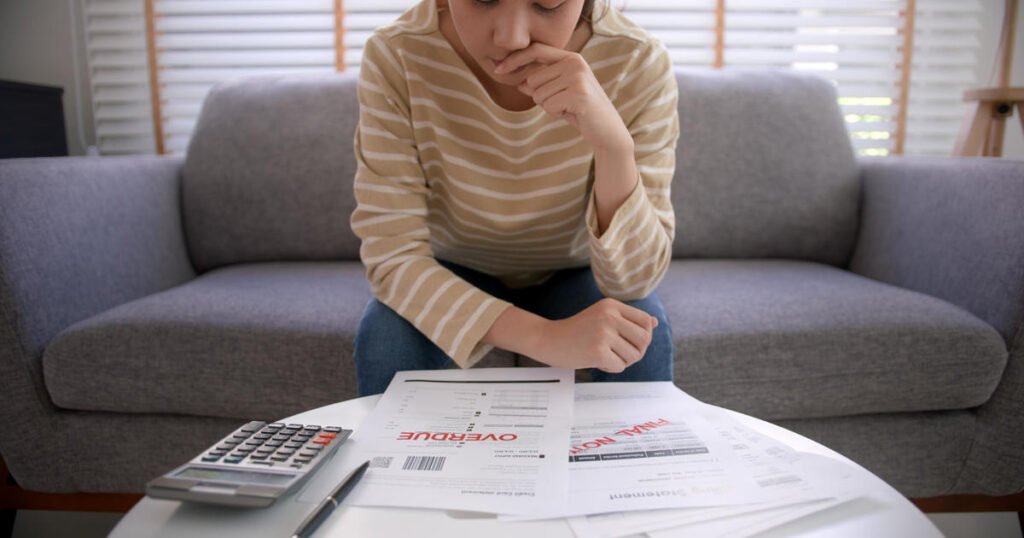Can credit card debt in collections be forgiven?
Getty Images
Credit card debt is one of the most persistent financial challenges facing Americans today, with millions of accounts falling into collections each year. When credit card bills go unpaid for extended periods, creditors often sell these delinquent accounts to collection agencies for pennies on the dollar, marking the beginning of an often stressful and confusing process for the cardholders who find themselves pursued by debt collectors.
For those struggling with credit card debt in collections, the prospect of having their debt forgiven or significantly reduced can offer a glimmer of hope. With credit card debt forgiveness, the goal is to pay less than what you owe on your balance by negotiating with your card issuers on a lump-sum settlement. While complete debt forgiveness is relatively rare, several pathways can lead to partial debt forgiveness or significant reductions in the amount owed.
That said, the reality of credit card debt forgiveness is often more nuanced than many people realize — and it won’t always be possible to achieve. So can credit card debt that’s already in collections be forgiven or do you need to search for other strategies instead?
Learn more about your debt forgiveness options here.
Can credit card debt in collections be forgiven?
Yes, credit card debt can be forgiven even after it has gone to collections, though the process typically requires demonstrating financial hardship and negotiating with collectors. Collection agencies often purchase debts for a fraction of their original value, sometimes for as little as a few cents on the dollar, which gives them significant room to negotiate and still make a profit. This creates an opportunity to settle your debts for less than the full amount owed.
The key to achieving debt forgiveness, though, usually lies in proving genuine financial hardship through documentation of your current financial situation. This might include providing evidence of job loss, medical emergencies, disability or other circumstances that have severely impacted your ability to pay. Collection agencies are often willing to work with those who can demonstrate that their financial difficulties are real and that partial payment is better than no payment at all.
The most common path to debt forgiveness involves negotiating a settlement amount that’s lower than the total debt owed. This typically requires having access to a lump sum of money that you can offer as immediate payment. Collection agencies are often more willing to forgive a portion of the debt if they can receive a guaranteed payment right away rather than risk getting nothing if the debtor files for bankruptcy or the debt becomes time-barred due to the statute of limitations.
Find out how to get rid of your credit card debt today.
How to have credit card debt in collections forgiven
If you’re seeking forgiveness on credit card debt in collections, these strategies may help:
A debt forgiveness or settlement program
Enrolling in a debt forgiveness program is one of the simplest ways to have your debt forgiven. When you enroll in a debt forgiveness program through a debt relief company, the company will work with the collections agency to try and negotiate a lump sum payment for less than the full amount owed as a final settlement.
While there’s no guarantee that a debt collector will settle at all, in many cases, working with a debt relief company could lead to paying 30% to 50% less than you originally owed. That’s the big benefit of working with a debt relief company; the expertise and guidance they offer come in handy during the negotiation process, possibly leading to a more successful outcome.
DIY debt settlement
You also have the option to try and negotiate a debt settlement on your own. Successfully negotiating by yourself can save you from the fees charged by debt relief companies — but it’s not as simple as enrolling in a debt forgiveness program.
When entering negotiations, start with a relatively low offer, which gives you room to negotiate upward. Be prepared for counteroffers and remember that successful negotiation requires patience and persistence. If you come to an agreement, request that the collection agency send you a formal settlement offer letter that clearly outlines all terms, including the settled amount and any payment arrangements.
Bankruptcy
While often seen as a last resort, filing for bankruptcy may also be an option worth considering if other debt relief strategies are not feasible. Chapter 7 bankruptcy, for instance, may discharge credit card debt entirely, though it will significantly impact your credit score. Chapter 13 bankruptcy reorganizes your debts into a manageable repayment plan over three to five years. Bankruptcy can provide a clean slate, but it’s important to consult with a bankruptcy attorney to fully understand the implications.
The bottom line
Dealing with credit card debt in collections can feel daunting, but it doesn’t have to be. There are options available for those willing to explore debt forgiveness strategies. Whether through DIY negotiation, with the help of a debt relief agency or via another method, like filing for bankruptcy, there are ways to manage or even eliminate collection debt. So do your homework, weigh your options and find the one that works best for your unique situation and goals.
You may be interested

Cavs’ Jarrett Allen stuns fans with backward halfcourt shot before game
new admin - Dec 24, 2024[ad_1] The Cleveland Cavaliers have been red hot to start the 2024-25 season, and center Jarrett Allen underscored that statement…

How a Georgia official stood up to a Russian ransomware ring
new admin - Dec 24, 2024How a Georgia official stood up to a Russian ransomware ring - CBS News Watch CBS News 2024 could go…

Chicago man sells “hardest pizza to get” in alley and donates proceeds to charity
new admin - Dec 24, 2024Chicago man sells "hardest pizza to get" in alley and donates proceeds to charity - CBS News Watch CBS News…



































